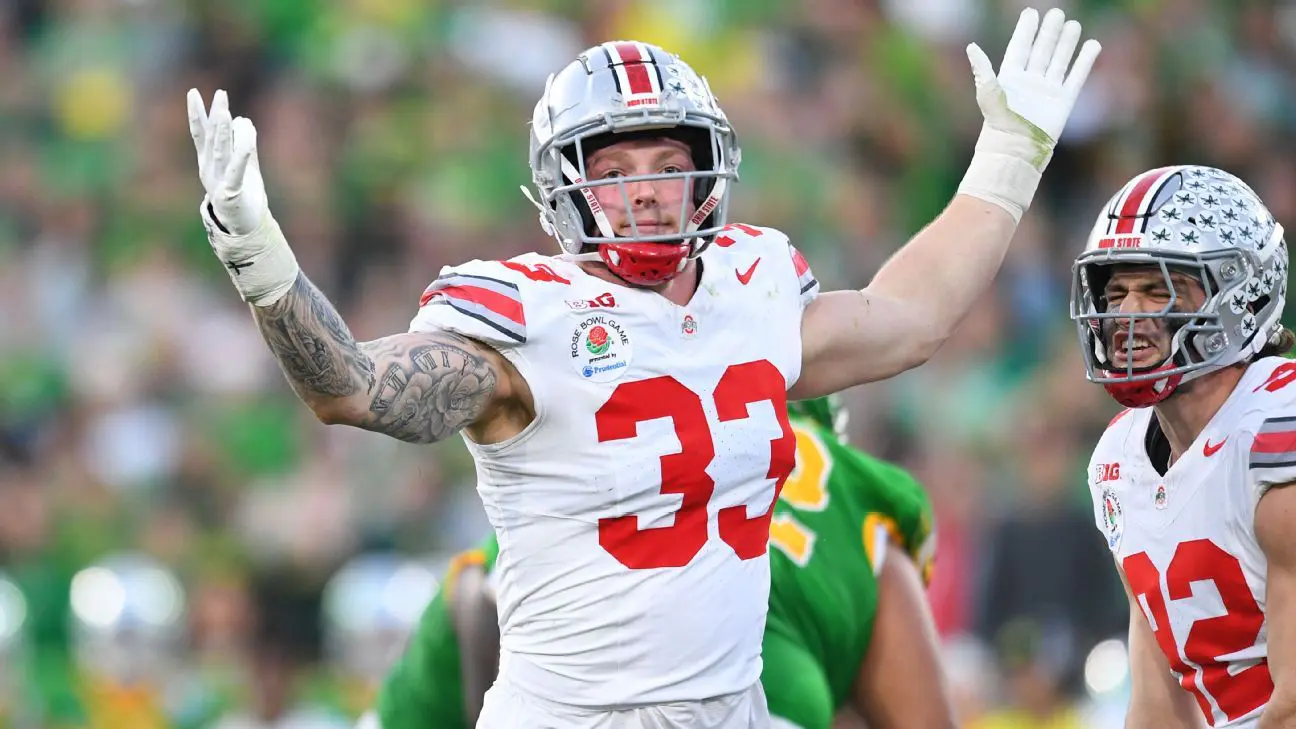Trump to be sentenced today on felony charges — 10 days before his inauguration
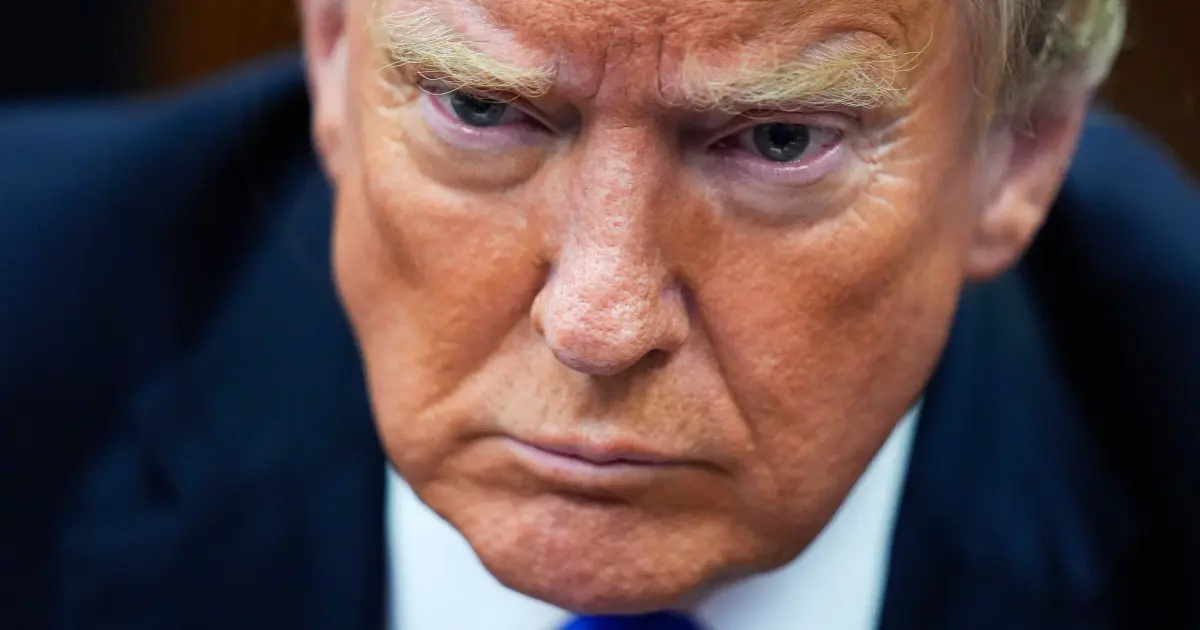
President-elect Donald Trump is scheduled to be sentenced Friday morning on felony charges — a history-making moment he had tried desperately to make sure wouldn't happen before his inauguration 10 days from now.
The sentencing is scheduled for 9:30 a.m. ET in New York criminal court, with Trump attending remotely.
Trump’s attorneys had repeatedly sought to stay the proceeding, which state Judge Juan Merchan scheduled last week. Their appeals to Merchan, two state appeals courts and even the country’s highest court over the past week were unsuccessful. Trump's last hope, the U.S. Supreme Court, declined to block the proceeding in a 5-4 ruling late Thursday.
Had the sentencing been postponed until after Trump’s inauguration, his lawyers would have been able to argue that presidential immunity and his duties as commander in chief should bar the proceeding from happening.
The sentencing means Trump will make some ignominious history before he becomes only the second president to be sworn in for two nonconsecutive terms: He'll be the only president to have been sentenced on criminal charges.
Trump, in remarks to the media from his Mar-a-Lago club in Florida on Thursday after the Supreme Court ruling, alluded to the possibility of further appeals, such as an attempt to appeal the verdict itself.
“So I’ll do my little thing tomorrow. They can have fun with their political opponent,” he said.
Merchan isn’t expected to sentence Trump to any jail time. He said in a decision last week ordering the sentencing to proceed that he would most likely give Trump an unconditional discharge, a sentence that allows the conviction to stand with no further penalties.
He is, however, likely to blast Trump for both the conduct that led to his conviction in May and his behavior during and after the trial.
Responding last week in his ruling to Trump's argument that the charges weren’t serious and that they should be dismissed, Merchan wrote, "12 jurors unanimously found Defendant guilty of 34 counts of falsifying business records with the intent to defraud, which included an intent to commit or conceal a conspiracy to promote a presidential election by unlawful means. It was the premeditated and continuous deception by the leader of the free world that is the gravamen of this offense."
"To vacate this verdict on the grounds that the charges are insufficiently serious given the position Defendant once held, and is about to assume again, would constitute a disproportionate result and cause immeasurable damage to the citizenry's confidence in the Rule of Law," he wrote.
He also took Trump to task for his attackson the judicial system.
"Defendant's disdain for the Third Branch of government, whether state or federal, in New York or elsewhere, is a matter of public record. Indeed, Defendant has gone to great lengths to broadcast on social media and other forums his lack of respect for judges, juries, grand juries and the justice system as a whole," Merchan wrote, saying he'd repeatedly found Trump in contempt for violating his partial gag order in the case "despite repeated admonitions."
Trump, he noted, has continued to call the order "unlawful" and "unconstitutional," even though "it has been challenged and upheld by the Appellate Division First Department and the New York Court of Appeals, no less than eight times."
"Indeed, as Defendant must surely know, the same Order was left undisturbed by the United States Supreme Court on December 9, 2024. Yet Defendant continues to undermine its legitimacy, in posts to his millions of followers," Merchan wrote.
Trump attorney Todd Blanche said at an appeals court hearing seeking to block the sentencing this week that he was skeptical Merchan would give Trump an unconditional discharge.
“I don’t know how anyone can give any weight to that,” Blanche said.
In his ruling last Friday, Merchan noted that a sentence of incarceration is "authorized by the conviction" but said it is also an alternative that even prosecutors "no longer view as a practicable recommendation" given Trump's imminent swearing-in.
Manhattan District Attorney Alvin Bragg told reporters Thursday, "We believe that the sanctity of the jury verdict must be given primacy, must be upheld as part of the rule of law, but we’re also mindful of and respect the institution of the presidency."
Trump's conviction arose from charges that he falsified business records related to hush money his former attorney Michael Cohen gave porn star Stormy Daniels in the closing days of the 2016 presidential campaign.
Daniels testified that she had a sexual encounter with Trump in 2006, which he has denied.
The case was one of four criminal cases Trump was facing at the beginning of 2024 and the only one that went to trial.
A state case charging Trump interfered in the 2020 election in Georgia is paused as Fulton County District Attorney Fani Willis is challenging an appeals court order that removed her and her office from the case last month.
The Justice Department dropped two federal cases brought by special counsel Jack Smith after Trump won the election, citing its Office of Legal Counsel's holding that it can’t prosecute a sitting president.
Trump Will Be Sentenced In Hush Money Case Today—Here’s What To Expect
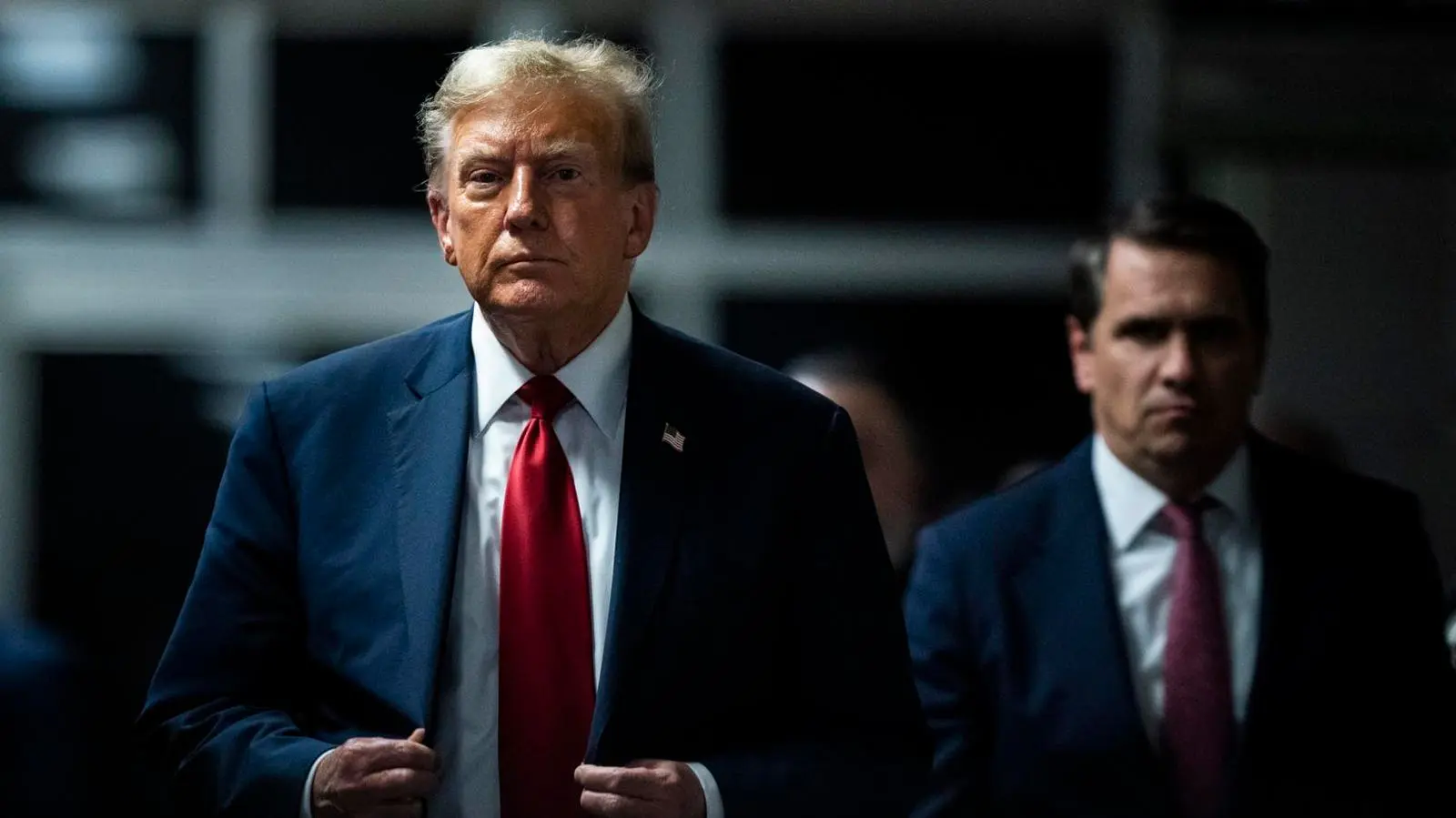
President-elect Donald Trump will be sentenced in his hush money criminal case Friday after the Supreme Court refused to pause it, the first-ever sentencing of a former president on criminal charges—though Trump will likely face few, if any, penalties, and is all but certain not to be sentenced to prison.
While Merchan has suggested he’s likely to grant an unconditional discharge, his final ruling on Trump’s sentence could be different. If the judge does not grant an unconditional discharge, Trump could still be fined up to $170,000 even if he’s not given prison time, based on a $5,000 fine per charge. The judge could also impose other penalties like probation, though that’s unlikely, given the logistical issues that could present given Trump’s presidency.
An unconditional discharge, as Trump is likely to get, can be imposed under New York state law when the “court is of the opinion that no proper purpose would be served by imposing any condition upon the defendant's release.” When a defendant is given an unconditional discharge, the court will have to give its reason for doing so, and the defendant is released “without imprisonment, fine or probation supervision,” according to New York law.
Yes. By being sentenced, even if he’s given an unconditional discharge, Trump will formally be convicted of his 34 crimes, as the Justice Department notes being sentenced is necessary for a conviction. The sentencing also means Trump will then be allowed to formally appeal the jury’s verdict against him, which he can’t do before his sentencing.
No. This criminal case against Trump was brought in state court, and presidents only have the power to pardon federal charges. (Both federal criminal cases against Trump have been dropped.) It’s also still an open legal question whether Trump could pardon himself in a federal case to begin with: The Justice Department issued guidance in 1974 during the Watergate scandal saying presidents cannot pardon themselves, though the issue has never actually been tested in practice.
Convicted felons face a number of restrictions, though many of them are unlikely to apply to Trump, like holding state public office. Trump will not be able to serve on a jury or own a firearm, and most notably, many countries have travel restrictions that bar convicted felons from entering, which means that as president he may have to get special permission for some travels. That wouldn’t be a first, as CBS News notes President George W. Bush had to get a waiver to travel to Canada as president because he previously pleaded guilty to drunk driving. More than a dozen countries have such restrictions in place, including Australia, Canada, China, Japan and the United Kingdom.
A jury found Trump guilty on 34 felony counts of falsifying business records in May following a weekslong trial. Trump was charged based on a hush money payment his ex-attorney Michael Cohen paid adult film star Daniels before the 2016 election, which Trump then reimbursed through a series of payments that prosecutors successfully argued were falsely labeled as being for legal services. Trump pleaded not guilty to the charges and has long denied any wrongdoing. Trump’s Friday sentencing comes after the president-elect was successfully able to delay his sentencing for months after it was initially scheduled for July, first until September and then until after the election. The sentencing had been postponed indefinitely before Merchan scheduled it for Friday. Trump’s sentencing also comes as his other criminal cases have fallen apart in the wake of his presidential win. His two federal cases were dismissed due to the Justice Department’s policy against prosecuting sitting presidents, while the fate of his criminal case in Georgia is up in the air following an appeals court ruling to disqualify Fulton County District Attorney Fani Willis from overseeing the prosecution.
Trump’s expected unconditional discharge—likely the only criminal sentence he’ll receive, at least before he takes office—marks a far cry from the potential penalties of up to 717 years in prison and $11.2 million in fines he could have received, if he had been found guilty on every charge he was indicted on in his four criminal cases and given the maximum penalty for each.
Donald Trump can be sentenced Friday in hush money case, Supreme Court says in 5-4 ruling
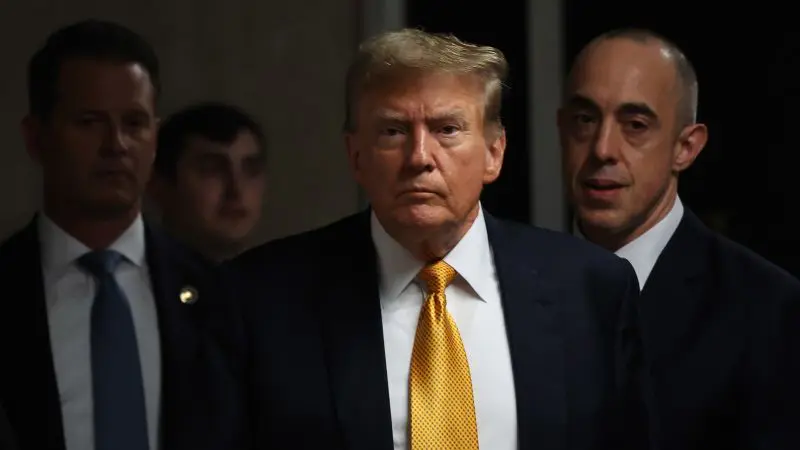
President-elect Donald Trump can be sentenced Friday in his New York hush money case, the Supreme Court said in a 5-4 ruling.
The high court on Thursday rejected Trump’s emergency request to delay the proceeding, setting the stage for him to be sentenced just days before he is inaugurated on January 20 for a second term.
Four conservative justices – Clarence Thomas, Samuel Alito, Neil Gorsuch and Brett Kavanaugh – said they would have granted Trump’s request. Chief Justice John Roberts and Justice Amy Coney Barrett joined the court’s three liberals to side against Trump.
Judge Juan Merchan, the New York judge who oversaw Trump’s trial, had ordered sentencing in the case for Friday morning but has signaled that Trump will face neither penalties nor prison time.
The sentencing hearing is scheduled for Friday at 9:30 a.m. Trump will appear virtually, according to a person familiar with the plans, joining the proceedings from Mar-a-Lago.
In a brief, one-paragraph statement, the court said that some of Trump’s concerns could be handled “in the ordinary course on appeal.” The court also reasoned that the burden sentencing would impose on Trump’s responsibilities is “relatively insubstantial” in light of the trial court’s stated intent to impose no penalty.
The president-elect’s request at the US Supreme Court was an extraordinary appealbecause the justices rarely dip into a state criminal case before all appeals in state courts are fully exhausted. Trump’s underlying challenge to his conviction is still pending and Manhattan District Attorney Alvin Bragg argued the Supreme Court didn’t have jurisdiction to even consider the emergency request to delay the sentencing.
Trump was convicted in May of falsifying business records over payments to his then-lawyer Michael Cohen to reimburse a $130,000 hush money payment made to adult-film star Stormy Daniels, in order to keep her from speaking out about an alleged affair before the 2016 election. (Trump has denied the affair.)
The incoming president, who will be inaugurated in less than two weeks, is fighting his conviction, saying that it should be tossed because a conservative majority of the Supreme Court in July ruled that former presidents are entitled to sweeping immunity for official actions.
Part of Trump’s argument was that his trial included evidence involving official actions from his time in office, which under the Supreme Court’s immunity decision, would ordinarily be barred from reaching a jury. Prosecutors countered that those concerns could be hashed out on appeal.
Merchan rejected that argument in December, ruling that the evidence presented by the Manhattan district attorney’s office was not related to Trump’s official conduct as president.
Trump’s attorneys told the Supreme Court that having to deal with the sentencing would distract from his transition to power and potentially jeopardize national security.
“Defending criminal litigation at all stages – especially, as here, defending a criminal sentencing – is uniquely taxing and burdensome to a criminal defendant,” Trump’s lawyers told the high court.
“President Trump is currently engaged in the most crucial and sensitive tasks of preparing to assume the executive power in less than two weeks, all of which are essential to the United States’ national security and vital interests,” they wrote.
New York prosecutors scoffed at that argument in their own filing Thursday.
“There is a compelling public interest in proceeding to sentencing,” Bragg told the Supreme Court. “Defendant has provided no record support for his claim that his duties as President-elect foreclose him from virtually attending a sentencing that will likely take no more than an hour.”
In a final filing Thursday, Trump argued that the case involved concerns of “great national importance” and that “the constitutional structure, and the nation” would be “irreparably harmed by letting the sentencing go forward.”
The Supreme Court, meanwhile, found itself in another ethics controversy after Trump and Alito spoke by phone this week, just before Trump’s appeal was filed.
Key congressional Democrats on Thursday called for Alito to recuse himself from the sentencing case, citing the justice’s phone call with the president-elect to discuss one of his former clerks working for the incoming administration.
“Justice Alito’s decision to have a personal phone call with President Trump — who obviously has an active and deeply personal matter before the court — makes clear that he fundamentally misunderstands the basic requirements of judicial ethics or, more likely, believes himself to be above judicial ethics altogether,” said Maryland Rep. Jamie Raskin.
Justices can decide for themselves whether recusal is warranted, and it is rare that they do so.
Alito said that the sentencing dispute was not discussed in their conversation. Nor did the two discuss “any other matter that is pending or might in the future come before the Supreme Court or any past Supreme Court decisions involving the President-elect,” Alito said in a statement Wednesday.
This story has been updated with additional developments.
CNN’s Kaitlan Collins contributed to this report.
US Supreme Court lets Trump sentencing proceed in New York hush money case
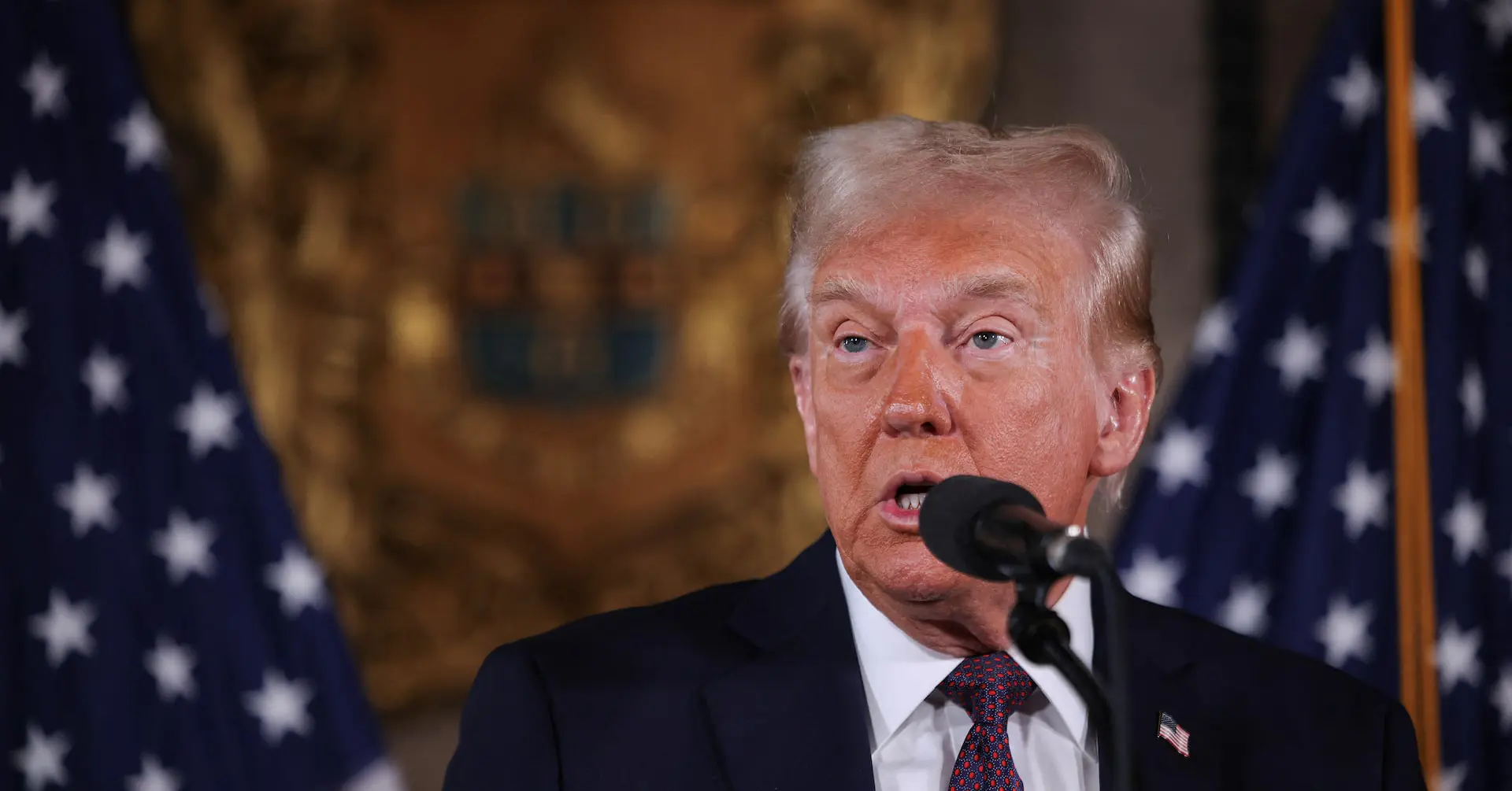
WASHINGTON, Jan 9 (Reuters) - The U.S. Supreme Court cleared the way on Thursday for Donald Trump to be sentenced for the president-elect's conviction on criminal charges involving hush money paid to a porn star, with two conservative justices joining the three liberal members in a 5-4 decision.
The court turned down Trump's last-minute bid to prevent his sentencing, scheduled for Friday in New York state court in Manhattan 10 days before his inauguration for his second term as president. Chief Justice John Roberts and fellow conservative Justice Amy Coney Barrett joined the court's three liberal justices - Sonia Sotomayor, Elena Kagan and Ketanji Brown Jackson - in forming a majority to deny Trump's request.
The court's brief, unsigned order gave two reasons for the decision.
"First, the alleged evidentiary violations at president-elect Trump's state-court trial can be addressed in the ordinary course on appeal. Second, the burden that sentencing will impose on the president-elect's responsibilities is relatively insubstantial in light of the trial court's stated intent to impose a sentence of 'unconditional discharge' after a brief virtual hearing," the order stated.
The trial judge, Justice Juan Merchan, said last week he was not inclined to sentence the Republican president-elect to prison and would likely grant him unconditional discharge. This would place a guilty judgment on Trump's record, but would not impose custody, a fine or probation. Merchan is set to sentence Trump at 9:30 a.m. (1430 GMT) on Friday.
Four conservative justices - Clarence Thomas, Samuel Alito, Neil Gorsuch and Brett Kavanaugh - dissented from the decision, noting they would have granted Trump's request. They did not provide their reasoning.
The court has a 6-3 conservative majority. Trump appointed Gorsuch, Kavanaugh and Barrett to their lifetime posts on the court during his first term in office.
Trump said in remarks at his Mar-a-Lago residence in Florida after the Supreme Court's order: "I read it, and I thought was a fair decision, actually."
Trump added on his social media platform: "For the sake and sanctity of the Presidency, I will be appealing this case, and am confident that JUSTICE WILL PREVAIL."
Trump had sought relief from the justices as he pursued a state court appeal to resolve questions of presidential immunity following a landmark Supreme Court ruling last July that granted former presidents broad immunity from criminal prosecution for their official acts.
The Supreme Court acted after New York's top court earlier on Thursday rejected Trump's request to halt the sentencing.
Manhattan District Attorney Alvin Bragg's office made a filing at the Supreme Court on Thursday morning, opposing Trump's bid for a stay.
Trump in a Supreme Court filing made public on Wednesday had asked for proceedings in the case to stop as he seeks an appeal following the Supreme Court's immunity ruling.
"This appeal will ultimately result in the dismissal of the District Attorney's politically motivated prosecution that was flawed from the very beginning," Trump's lawyer John Sauer wrote in the filing.
Trump was found guilty by a jury last May of 34 counts of falsifying business records to cover up a $130,000 payment to porn star Stormy Daniels in exchange for her silence shortly before the 2016 U.S. election about a sexual encounter she has said she had with Trump a decade earlier, which he has denied. Prosecutors have said the payment was designed to help Trump's chances in the 2016 election, when he defeated Democrat Hillary Clinton.
Trump is the first former U.S. president to be criminally prosecuted and the first former president convicted of a crime.
Trump has denied any wrongdoing.
Trump's lawyers contend that prosecutors improperly admitted evidence of Trump's official acts during the trial. They also argue that, as president-elect, Trump is immune from prosecution during the period between his November election victory and his inauguration.
In their filing on Thursday to the Supreme Court, the New York prosecutors said that "all of the evidence defendant challenged in his post-trial motion either concerned unofficial conduct that is not subject to any immunity, or is a matter of public record that is not subject to preclusion, as the trial court correctly held."
As to Trump's argument that he is immune as president-elect, the prosecutors said this "extraordinary immunity claim is unsupported by any decision from any court."
"It is axiomatic that there is only one president at a time," they added.
In the 6-3 July ruling authored by Chief Justice John Roberts, the Supreme Court said immunity for former presidents is "absolute" with respect to their "core constitutional powers," and a former president has "at least a presumptive immunity" for "acts within the outer perimeter of his official responsibility," meaning prosecutors face a high legal bar to overcome that presumption.
Merchan in December rejected Trump's immunity argument, finding that the hush money case dealt with Trump's personal conduct, not his official acts as president.
The Supreme Court's decision on Thursday came after it gave Trump victories last year in three important cases. In addition to the immunity ruling, the justices reinstated Trump to the presidential primary ballot in Colorado and raised the legal bar for prosecutors pursuing obstruction charges in a since-dismissed election subversion criminal case against Trump.
Trump to be sentenced for New York "hush money" crimes, a historic first as he prepares to retake office
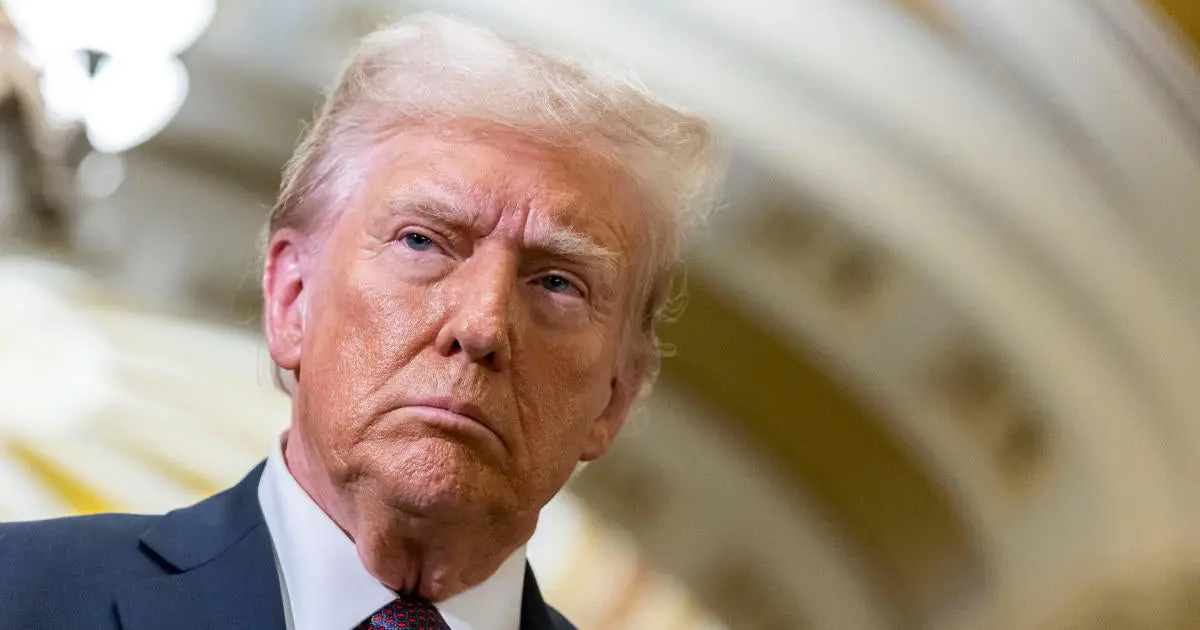
Appearing in court virtually from his Mar-a-Lago home Friday, President-elect Donald Trump is set to be sentenced for his crimes in the New York "hush money" case, in a moment unlike any other in American history.
Trump and his lawyers fought Manhattan prosecutors at every turn, dating back to the beginning of the "hush money" investigation in 2018. They challenged prosecutors' subpoenas and rulings by Justice Juan Merchan, battling all the way to the Supreme Court multiple times, including an effort this week to stave off Friday's hearing.
On Thursday, the Supreme Court said it would not intervene on Trump's behalf, clearing the way for Merchan to issue his decision. Trump soon after the high court's decision said he had read it and "thought it was a fair decision, actually," noting the Supreme Court justices pointed out he could appeal and that there would be "really…no penalty."
"But we're going to appeal anyway," he added.
"So, I'll do my little thing tomorrow. They can have fun with their political opponent," Trump said.
Merchan indicated in Jan. 3 ruling that he's inclined to give Trump unconditional discharge, a sentence that includes neither jail time nor any other restriction that might impede Trump after his inauguration on Jan. 20.
Trump will be given the opportunity to speak during the hearing, but does not have to, and Merchan may also take the time to make an informal speech before handing down the sentence.
Trump was found guilty in May after a seven-week trial. A unanimous jury concluded he committed 34 felonies in authorizing a scheme in 2017 to falsify records, in order to cover up reimbursements for a "hush money" payment to adult film star Stormy Daniels.
Daniels testified during the trial, as did Trump's former lawyer and "fixer" Michael Cohen, who received the falsified reimbursements for his wire to Daniels just before the 2016 presidential election. Cohen gave Daniels the $130,000 payment in exchange for her silence about an alleged sexual encounter with Trump years earlier.
Multiple witnesses testified that Trump was pleased voters did not learn of Daniels' story before the 2016 election.
Merchan held Trump in contempt 10 times during the trial for violations of a gag order barring him from making public comments about witnesses, court staff and others. In issuing the 10th contempt citation, Merchan — who frequently acknowledged the unique circumstances of the trial and its famed, powerful defendant — foreshadowed Friday's likely sentence.
"The last thing I want to do is to put you in jail," Merchan said.
Trump’s Hush Money Sentencing Will Take Place Friday As Supreme Court Rejects Last-Ditch Appeal
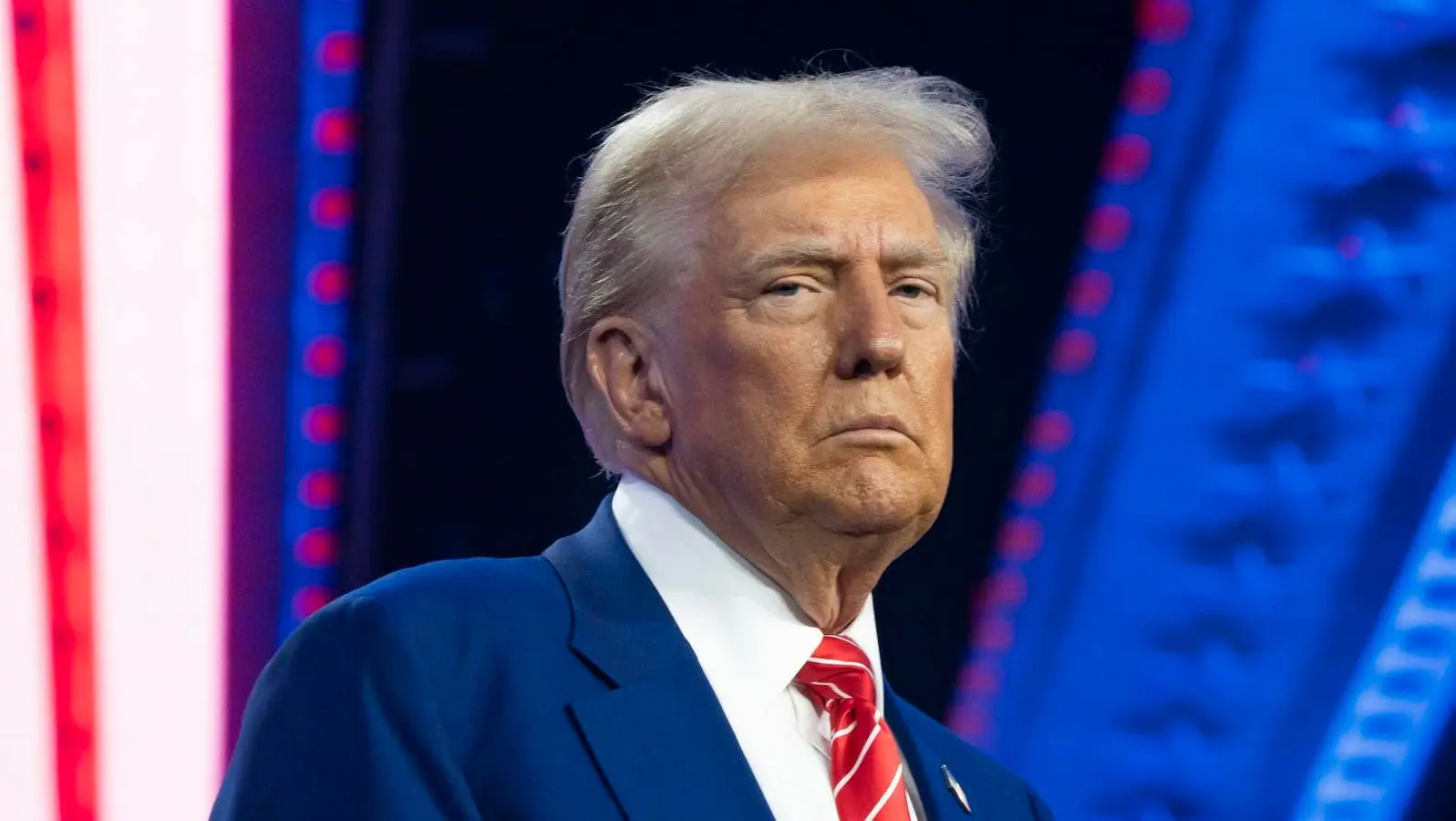
President-elect Donald Trump's criminal sentencing will take place Friday in Manhattan as scheduled, as the Supreme Court rejected his last-ditch effort to have the guilty verdict against him thrown out—though the president-elect is still unlikely to face many, if any, penalties for his crimes.
Trump’s sentencing will take place at 9:30 a.m. EST on Friday in Manhattan, though the president-elect is expected to attend virtually.
Trump is not expected to face many, if any, penalties at his sentencing. Merchan said last week he’s inclined to grant an “unconditional discharge”—meaning Trump’s conviction would stand, but he won’t face any punishments—and was not likely to impose any prison time. The Manhattan DA’s office said it does not oppose the unconditional discharge. If Trump did face any penalty, he could be ordered to pay up to $170,000 in fines, based on a maximum $5,000 fine for each of his 34 counts—though other punishments, like probation, would likely be logistically difficult given his impending presidency.
Rep. Jamie Raskin, D-Md., the ranking member on the House Judiciary Committee, asked Justice Samuel Alito to recuse himself Thursday from considering Trump’s sentencing and hush money case, following reports that Alito spoke on the phone with Trump hours before the president-elect asked the justices to pause his sentencing. Alito has defended the phone call, saying he was asked to take a call from Trump in order to discuss a former law clerk who’s seeking a job in his administration, and he did not discuss the sentencing case or any other Trump-related legal matters with the president-elect. Alito did not recuse himself from the court’s ruling Thursday.
A jury convicted Trump in May on 34 felony counts of falsifying business records, based on his reimbursement checks to ex-attorney Michael Cohen for a hush money payment to adult film star Stormy Daniels before the 2016 election. Trump’s sentencing was initially set for July but was repeatedly postponed at Trump’s request, first to September and then until November—after the election. It was then postponed indefinitely after Trump’s victory, before Merchan scheduled it for Jan. 10. The judge’s ruling scheduling the sentencing was unexpected, as prosecutors had suggested Trump should be sentenced after he left office or have his sentencing dropped entirely. Merchan argued the last-minute sentencing before Trump’s inauguration was the president-elect’s own doing after he repeatedly delayed the sentencing, however, and in delaying it past Election Day, Trump should have been prepared for it to take place even if he won. The judge then refused to pause the sentencing when Trump said he was planning to appeal the judge’s ruling, and a New York appeals court followed suit. New York’s highest court also declined to pause the sentencing Thursday morning, while the Supreme Court was deliberating on its ruling.
Supreme Court won't stop Trump sentencing in "hush money" criminal case
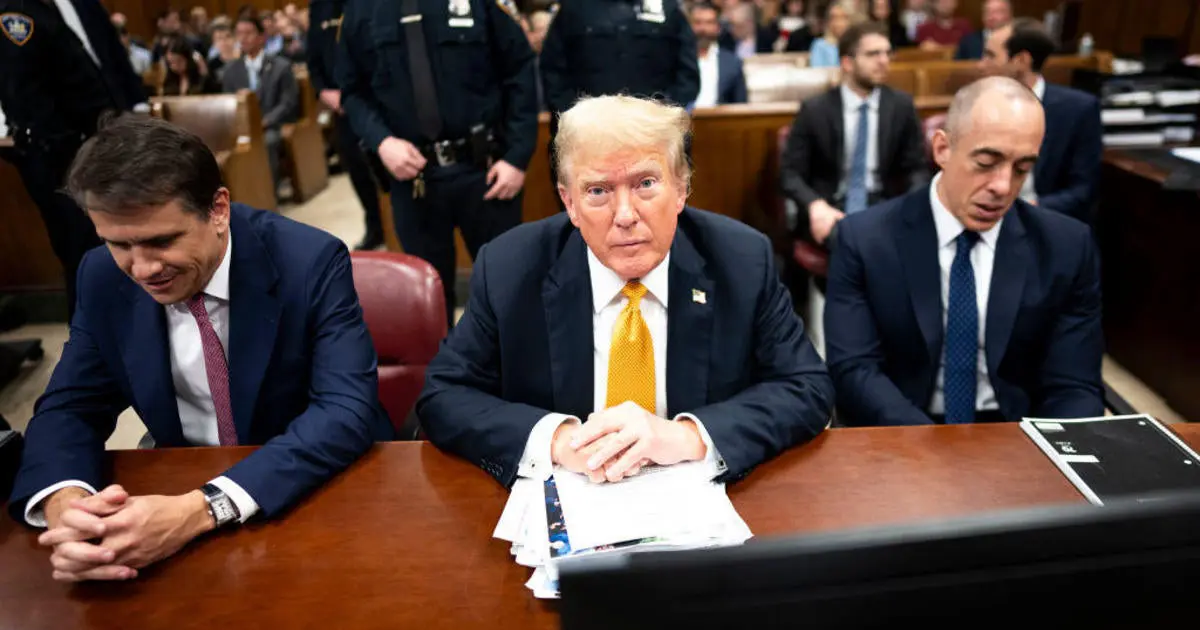
The Supreme Court rejected a last-ditch effort by lawyers for President-elect Donald Trump to forestall his sentencing for his New York criminal conviction.
The five justice majority that voted to deny Trump's application wrote that the evidentiary issues Trump has complained about "can be addressed in the ordinary course on appeal."
They also noted that the judge overseeing Trump's New York case has signaled he will not sentence Trump to serve any time in jail, writing "the burden that sentencing will impose on the President-Elect's responsibilities is relatively insubstantial in light of the trial court's stated intent to impose a sentence of 'unconditional discharge' after a brief virtual hearing."
Justices Clarence Thomas, Brett Kavanaugh, Samuel Alito and Neil Gorsuch would have granted Trump's application for a postponement of sentencing, the majority wrote.
Speaking to reporters from his Mar-a-Lago residence in Florida, where the president-elect is meeting with Republican governors, Trump said he still plans to appeal the case, despite that the sentencing will lack jail time.
"They acknowledge what the judge said about no penalty, and there is, really, there's no penalty, but we're going to appeal anyway," Trump said.
"So I read it, and I thought it was a fair decision, actually. So I'll do my little thing tomorrow. They can have fun with their political opponent," he added.
The incoming president sought an emergency reprieve from the nation's highest court after the New York judge who oversaw Trump's trial on Jan. 3 sent the president-elect hurtling toward the long-delayed sentencing.
New York Justice Juan Merchan rejected Trump's latest motions to dismiss the case, and set aside his conviction, which argued a president-elect is entitled to the same protections from criminal proceedings as a president. Trump, who railed against the case for years, also said evidence shown at trial that related to his first presidency violated that same constitutional immunity.
New York prosecutors objected to any further delay of the sentencing hearing, which has now been scheduled four times since Trump's conviction on 34 felony counts of falsifying business records.
They noted in multiple filings this week that Merchan already telegraphed his sentencing decision on Jan. 3, when he said he was inclined to release Trump without incarceration or any other restriction.
In May, a unanimous jury found Trump guilty for authorizing a scheme to falsify records related to reimbursements for a so-called "hush money" payment to an adult film star. The payment was made before Trump's first election in 2016, but Trump signed off on the reimbursements to his former lawyer and "fixer" Michael Cohen — and an accompanying coverup — during his time in the Oval Office.
Trump says it was unconstitutional for the jury to see evidence and hear testimony from the years when he was in the White House.
Trump's lawyers urged the Supreme Court to prevent his sentencing, set for just 10 days before his inauguration, "to prevent grave injustice and harm to the institution of the presidency and the operations of the federal government."
The case has wound its way to the Supreme Court repeatedly since Manhattan prosecutors began their investigation in 2018. In a landmark 2020 decision, the court ruled that the Manhattan district attorney had the power to subpoena Trump's tax records. Trump continued to fight their release even after that decision, until 2021, when the Supreme Court again rejected his efforts to shield the financial records.
Merchan gave Trump the option of attending the sentence via video, as opposed to in-person, and prosecutors said in court filings and arguments this week that he has said he will take the virtual appearance option.
Aaron Navarro contributed to this report.
Supreme Court rejects Trump bid to halt sentencing in hush money case
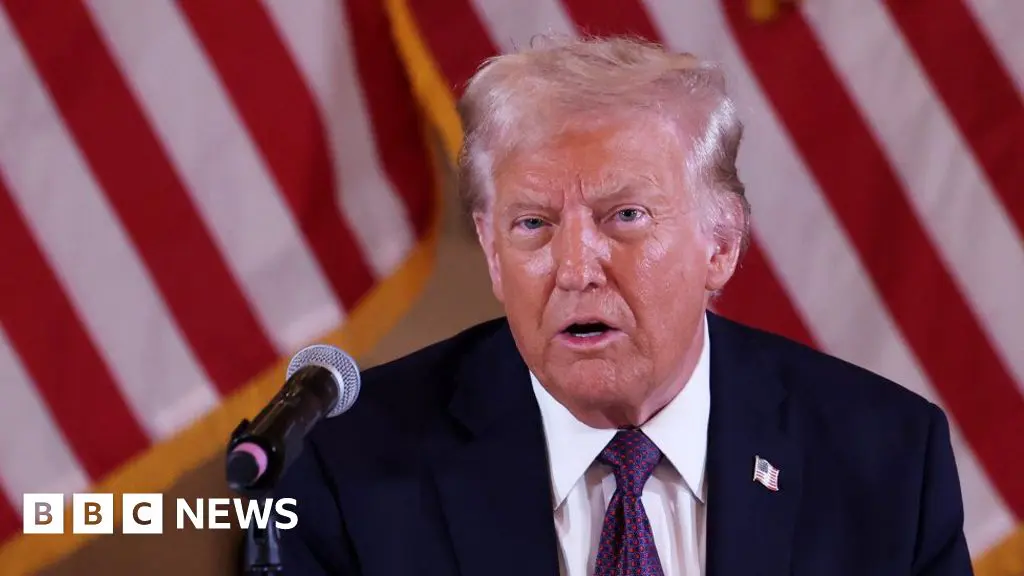
The US Supreme Court has rejected President-elect Donald Trump's last-minute bid to halt his sentencing on Friday in the criminal hush-money case.
Trump had urged the top court to consider whether he was entitled to an automatic stay of his sentencing, but the justices rejected the application by 5-4.
Trump was found guilty of falsifying records to disguise reimbursements for a $130,000 hush money payment to adult film star Stormy Daniels as legal expenses in 2016.
Justice Juan Merchan, who is overseeing the case, has indicated he will not consider a jail term for Trump.
Reacting on Thursday evening, the president-elect told reporters the case was a "disgrace", although the Supreme Court decision was a "fair decision, actually."
"It's a judge that shouldn't have been on the case," he said, apparently referring to Justice Merchan, and adding "they can have fun with their political opponent".
"The pathetic, dying remnants of the Witch Hunts against me will not distract us," he posted later on his Truth Social platform.
Two of the Supreme Court's conservative justices - John Roberts and Amy Coney Barrett - joined the three liberals to deny Trump's request for a delay.
The remaining four judges - Clarence Thomas, Samuel Alito, Neil Gorsuch and Brett Kavanaugh - would have allowed Trump's bid to postpone sentencing.
Alito has been criticised for speaking to Trump just a day before the decision in a phone call when the top judge recommended one of his former law clerks for a job with the incoming president's administration.
Three lower New York courts had rejected Trump's delay attempt before the Supreme Court made its final decision on Thursday evening to let the sentencing proceed as scheduled.
The justices denied Trump's petition because they believed his concerns could be addressed during an appeal.
They also wrote that the burden of attending a sentencing was "insubstantial".
Trump's lawyers had also asked the Supreme Court to consider whether presidents-elect had immunity from criminal prosecution.
Manhattan prosecutors had urged the Supreme Court to reject Trump's petition, arguing there was a "compelling public interest" in holding the sentencing and that there was "no basis for such an intervention".
Following the jury's guilty verdict in May 2024, Trump was initially set to be sentenced in July, but his lawyers successfully persuaded Justice Merchan to delay the sentencing on three separate occasions.
Last week, Justice Merchan declared the sentencing would move forward on 10 January, just days before Trump is sworn in again as president.
The days since have seen a volley of appeals and court filings from Trump's attorneys, trying to stave off the sentencing.
But in swift succession, New York courts rejected the bids. Finally on Wednesday, Trump's lawyers petitioned the Supreme Court to intervene.
The court should stay the proceedings "to prevent grave injustice and harm to the institution of the Presidency and the operations of the federal government", they wrote.
Last year, the bench's 6-3 conservative majority handed Trump a major victory, when they ruled that US presidents had immunity from criminal prosecution for "official acts" undertaken in office.
That decision gutted a federal prosecution against Trump on charges he illegally interfered in the 2020 election outcome, which he denied and pleaded not guilty.
But since his re-election, Trump's lawyers have tried to persuade a series of judges that those presidential immunity protections should also apply to a president-elect in this Manhattan criminal case.
Manhattan prosecutors argued in their own brief to the Supreme Court that Trump's "extraordinary immunity claim is unsupported by any decision from any court".
"It is axiomatic that there is only one President at a time," the prosecutors wrote.
Separately, a group of former public officials and legal scholars filed an amicus brief - effectively a letter of support - to the Supreme Court, asking the justices to reject Trump's "attempt to avoid accountability".
In another legal setback for Trump on Thursday, a federal appeals court in Georgia rejected a bid to block the release of a portion of special counsel Jack Smith's report into Trump's alleged plot to prevent the transfer of power to Joe Biden after the 2020 election.
Lawyers for Walt Nauta, a former aide, and former Mar-a-Lago property manager Carlos de Oliveira had argued that the release would unfairly prejudice potential future criminal cases against them.
North America correspondent Anthony Zurcher makes sense of US politics in his twice weekly US Election Unspun newsletter. Readers in the UK can sign up here. Those outside the UK can sign up here.
Judge sets Trump’s sentencing in hush money case for Jan. 10, but signals no jail time
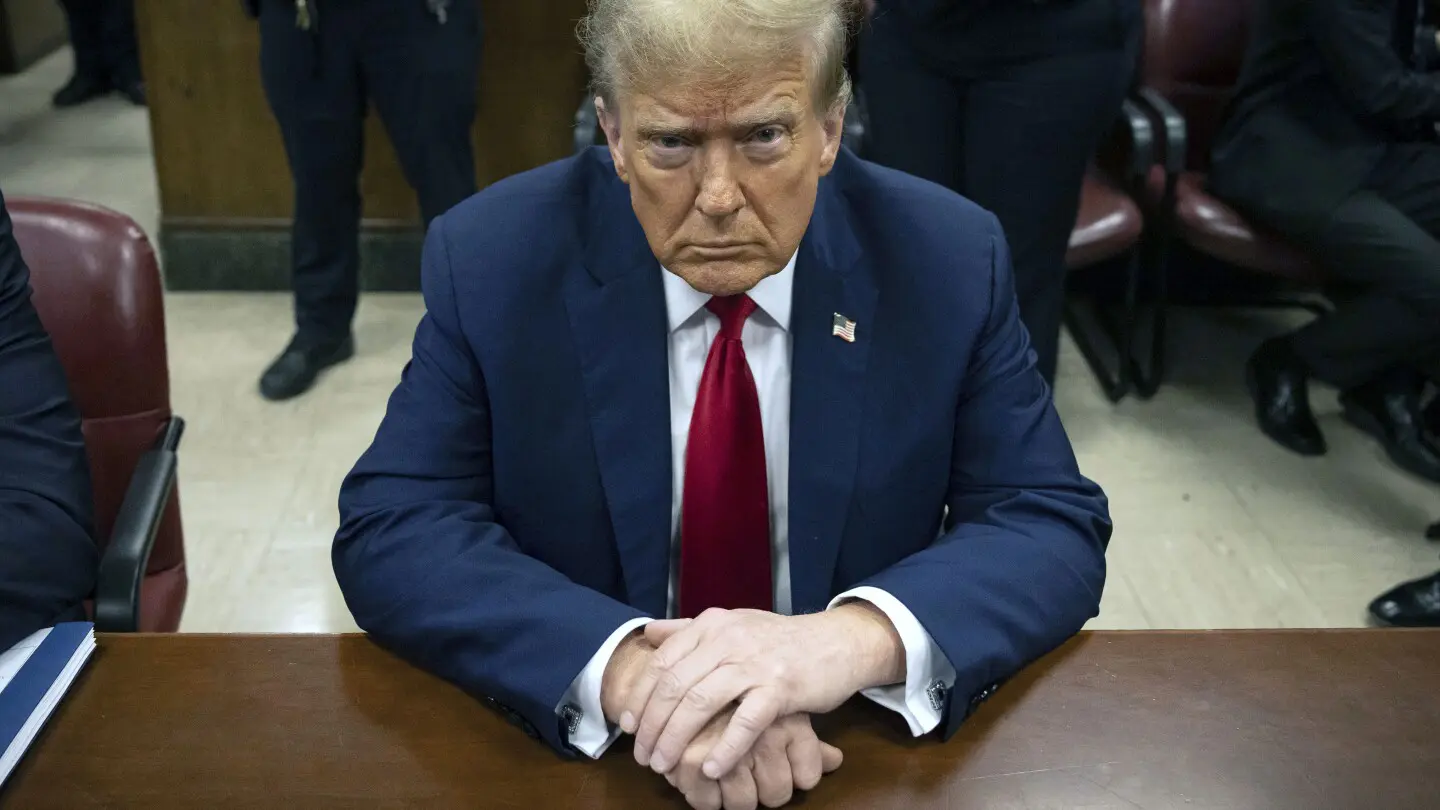
NEW YORK (AP) — In an extraordinary turn, a judge Friday set President-elect Donald Trump’s sentencing in his hush money criminal case for Jan. 10 — little over a week before he’s due to return to the White House — but indicated he wouldn’t be jailed.
The development nevertheless leaves Trump on course to be the first president to take office convicted of felony crimes.
Manhattan Judge Juan M. Merchan, who presided over Trump’s trial, signaled in a written decision that he’d sentence the former and future president to what’s known as an unconditional discharge, in which a conviction stands but the case is closed without jail time, a fine or probation. Trump can appear virtually for sentencing, if he chooses.
Rejecting Trump’s push to dismiss the verdict and throw out the case on presidential immunity grounds and because of his impending second term, Merchan wrote that only “bringing finality to this matter” would serve the interests of justice.
He said he sought to balance Trump’s ability to govern, “unencumbered” by the case, against other interests: the U.S. Supreme Court’s July ruling on presidential immunity and the public’s expectation “that all are equal and no one is above the law,” and the importance of respecting a jury verdict.
“This court is simply not persuaded that the first factor outweighs the others at this stage of the proceeding,” Merchan wrote in an 18-page decision.
Trump lashed out at Merchan on his Truth Social platform Friday, writing that it “would be the end of the Presidency as we know it” if the judge’s ruling is allowed to stand.
He repeated his claims that the case was an “illegitimate political attack” and “nothing but a Rigged Charade” perpetuated by Manhattan District Attorney Alvin Bragg, a Democrat. He didn’t elaborate on potential next legal moves.
Bragg’s office declined to comment on Merchan’s ruling.
Former Manhattan Judge Diane Kiesel said the ruling can’t be appealed under New York law, but Trump nonetheless might try to appeal it. In any event, he can appeal his conviction — a step that can’t be taken until he is sentenced — but he won’t be able to pardon himself. Trump’s case was tried in state court, but presidential pardons only apply to federal crimes.
Trump takes office Jan. 20 as the first former president to be convicted of a crime and the first convicted criminal to be elected to the office.
The Republican was found guilty in May of 34 counts of falsifying business records.
The charges involved an alleged scheme to hide a hush money payment to porn actor Stormy Daniels in the last weeks of Trump’s first campaign in 2016. The payout was made to keep her from publicizing claims she’d had sex with the married Trump years earlier. He says that her story is false and that he did nothing wrong.
The case centered on how Trump accounted for reimbursing his personal attorney at the time, Michael Cohen, for the Daniels payment. Cohen on Friday called Merchan’s decision to go ahead with the sentencing “judicious and appropriate.”
The conviction left Trump, 78, facing the possibility of punishment ranging from a fine or probation to up to four years in prison. His sentencing initially was set for last July 11, then postponed twice at the defense’s request.
Then, after Trump’s Nov. 5 election, Merchan delayed the sentencing again so the defense and prosecution could weigh in on the future of the case.
Trump’s lawyers urged Merchan to toss it. They said it would otherwise pose unconstitutional “disruptions” to the incoming president’s ability to run the country.
Prosecutors acknowledged there should be some accommodation for his upcoming presidency, but they insisted the conviction should stand.
They suggested various options, such as freezing the case during his term or guaranteeing him a no-jail sentence. They also proposed closing the case while formally noting both his conviction and his undecided appeal — a novel idea drawn from what some state courts do when criminal defendants die while appealing their cases.
Merchan ruled that Trump’s current status as president-elect does not afford him the same immunity as a sitting president. Setting the verdict aside and dismissing the case would be a “drastic” step and would “undermine the Rule of Law in immeasurable ways,” Merchan wrote.
Before Trump’s November election, his lawyers sought to reverse his conviction for a different reason: the Supreme Court’s immunity decision, which gave presidents broad protection from criminal prosecution.
Trump was a private citizen — campaigning for president, but neither elected nor sworn in — when Cohen paid Daniels in October 2016. He was president when Cohen was reimbursed, and Cohen testified that they discussed the repayment arrangement in the Oval Office.
The Trump hush money attorneys contended that the jury got some evidence that should have been shielded by presidential immunity. Merchan later rejected that argument, but in the meantime, the election raised new issues.
While urging Merchan to nix the conviction, Trump also sought to move the case to federal court, where he could also assert immunity. A federal judge repeatedly said no, but Trump appealed.
The hush money case was the only one of Trump’s four criminal indictments to go to trial.
Since the election, special counsel Jack Smith has ended his two federal cases. One pertained to Trump’s efforts to overturn his 2020 election loss; the other alleged he hoarded classified documents at his Mar-a-Lago estate.
A separate, state-level election interference case in Georgia is in limbo after an appeals court removed prosecutor Fani Willis from the case.
Trump’s lawyers argued that Smith’s decision to dismiss the federal indictments against Trump should propel a dismissal of the New York hush money case, as well. But Merchan said he found that argument unpersuasive, noting that the hush money case was in a “vastly” different stage.
Associated Press writer Larry Neumeister contributed.
